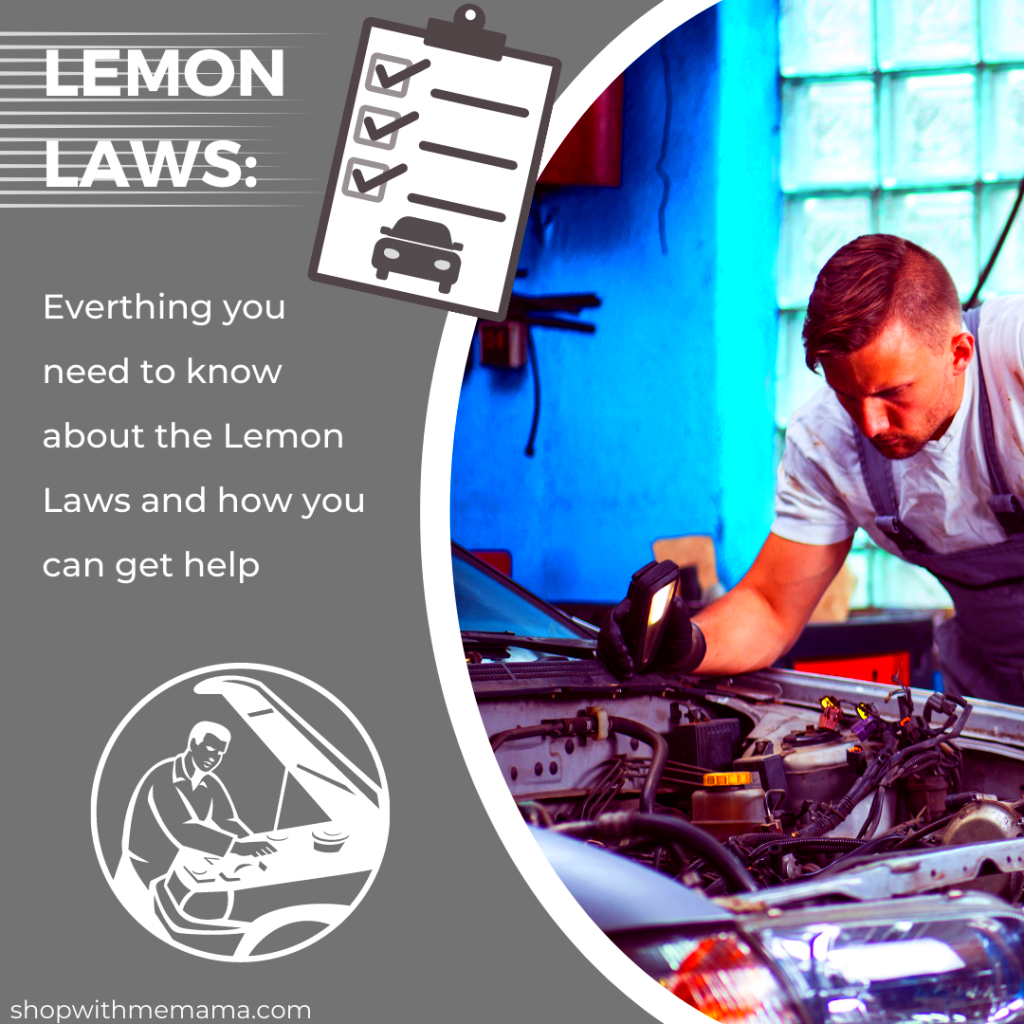Lemon Laws in Alabama and Your Rights as a Consumer
If you suspect that your vehicle is a lemon, there are several steps you can take to protect your rights and seek a remedy. Acting quickly and methodically is key to navigating this process smoothly. Here’s what you should do:
- Document the issues: Keep a detailed record of all the problems you experience with the vehicle. This includes dates, descriptions of the issues, and any repairs performed.
- Gather repair records: Collect all receipts and documentation from repair visits. This will serve as evidence of your attempts to fix the vehicle.
- Contact the dealer: Reach out to the dealer where you purchased the vehicle. Explain the problems you’re facing and request repairs. Make sure to keep a record of all communications.
- Send a written notification: If the dealer cannot resolve the issue after a reasonable number of attempts, send a formal letter to the manufacturer detailing the defects. Include your documentation and a request for a refund or replacement.
- Consult with an attorney: If you don’t receive a satisfactory response from the manufacturer, consider seeking legal advice. A lawyer experienced in lemon law can help you understand your rights and options.
Following these steps can help ensure that you’re doing everything possible to resolve your situation effectively. Remember, being proactive is crucial!
Understanding Warranty Requirements

Warranties play a crucial role in lemon law claims. They provide a safety net for consumers by ensuring that vehicles are free from defects for a certain period or mileage. Here’s what you need to know about warranties:
- Types of warranties:
- Express warranty: This is a written promise from the manufacturer that specifies the terms of coverage. It may include guarantees about the vehicle’s performance or specific repairs.
- Implied warranty: Even if not explicitly stated, Alabama law provides an implied warranty of merchantability. This means the vehicle should be fit for ordinary use and meet reasonable quality standards.
- Duration: Warranties typically cover a certain timeframe or mileage. It’s essential to know the specifics of your warranty, including when it starts and ends.
- Transferability: If you sell or trade your vehicle, warranties may be transferable to the new owner. This can increase the vehicle’s resale value.
Understanding your warranty is vital, as it affects your lemon law rights. Always keep a copy of your warranty and any related documents handy.
The Role of the Manufacturer in Lemon Law Claims

The manufacturer plays a significant role in the lemon law process. Understanding their responsibilities and how they interact with consumers is crucial for navigating a claim:
- Repair obligations: Manufacturers are required to address defects within the warranty period. This means they should make reasonable attempts to repair any significant issues that arise.
- Consumer communication: Manufacturers must respond to consumer complaints promptly. If you notify them about a defect, they should provide guidance on next steps and potential remedies.
- Settlement options: If your vehicle is deemed a lemon, manufacturers may offer various remedies, including a refund, vehicle replacement, or cash settlement. It’s essential to understand your options and choose what works best for you.
- Dispute resolution: If a disagreement arises, manufacturers often have internal dispute resolution processes. You may need to follow these procedures before pursuing legal action.
Overall, knowing the manufacturer’s responsibilities can help you advocate for your rights as a consumer. Keeping detailed records of all interactions with them is also vital in building your case.
Common Remedies Available for Consumers
When a vehicle is determined to be a lemon under Alabama law, consumers have several remedies available to them. Understanding these options can help you make an informed decision about how to proceed. Here are the most common remedies:
- Refund: If your vehicle is classified as a lemon, you may be entitled to a full refund of the purchase price. This typically includes any taxes and fees paid at the time of purchase.
- Replacement vehicle: Instead of a refund, you may opt for a replacement vehicle. The manufacturer will provide you with a similar vehicle that meets the same specifications as your original purchase.
- Cash settlement: In some cases, manufacturers may offer a cash settlement for the defects. This option allows you to keep your vehicle while receiving compensation for the issues you’ve faced.
- Repair costs: If you’ve incurred expenses related to repairs, such as rental cars or towing fees, you might be able to recover those costs as part of your claim.
Each of these remedies has its own set of requirements and processes. It’s essential to weigh your options carefully and consider what will best meet your needs.
Limitations and Exclusions under Alabama Lemon Laws
While lemon laws provide important protections for consumers, there are limitations and exclusions you should be aware of. Understanding these can help you avoid pitfalls in your claim:
- Time limitations: Alabama lemon laws have specific timeframes within which you must file a claim. Generally, you need to act within the warranty period or within a certain number of miles.
- Used vehicles: Lemon laws typically apply to new vehicles. If you purchased a used vehicle, you might have limited protections unless it came with an express warranty.
- Negligence: If the defect was caused by your own actions or negligence, such as improper maintenance or accidents, you may not be eligible for relief under lemon laws.
- Excluded issues: Some minor issues, such as cosmetic defects or normal wear and tear, usually do not qualify under lemon laws.
Being aware of these limitations and exclusions can help you navigate the lemon law process more effectively. Always consult a legal professional if you’re unsure about your specific situation.
FAQ about Lemon Laws in Alabama
Here are some frequently asked questions about lemon laws in Alabama, which may clarify your understanding and help you with your concerns:
- What qualifies as a lemon in Alabama? A vehicle is considered a lemon if it has a significant defect that affects its use, safety, or value, and has undergone multiple repair attempts without resolution.
- How long do I have to file a claim? You generally need to file your claim within the warranty period or within a specific timeframe after the defect is discovered. It’s important to act quickly.
- Do I need an attorney for a lemon law claim? While it’s not required, consulting with an attorney experienced in lemon law can provide valuable guidance and help you navigate the claims process more effectively.
- What documents do I need to provide? You should gather all documentation related to the vehicle, including purchase contracts, repair records, and any correspondence with the dealer or manufacturer.
- Can I still pursue a claim if I’ve sold the vehicle? In some cases, yes. If the vehicle was classified as a lemon while you owned it, you may still have options even if you’ve sold it.
These FAQs address common concerns and can help you better understand your rights under Alabama’s lemon laws.
Conclusion on Your Rights as a Consumer
Understanding your rights as a consumer under Alabama’s lemon laws is crucial when dealing with defective vehicles. Lemon laws are designed to protect you from purchasing cars that fail to meet quality and safety standards. By familiarizing yourself with the steps to take, eligibility criteria, and available remedies, you can effectively navigate the lemon law process.
As a consumer, you have the right to:
- Receive a refund or replacement: If your vehicle is deemed a lemon, you can pursue a full refund or a comparable replacement vehicle.
- Be informed: You have the right to clear communication from both the dealer and the manufacturer regarding your vehicle’s issues and the steps being taken to resolve them.
- Seek legal assistance: Consulting with a qualified attorney can help protect your rights and ensure you are treated fairly throughout the process.
Remember, it’s essential to document all interactions related to your vehicle and act within the required timeframes to safeguard your rights. By being proactive and informed, you can take the necessary steps to hold manufacturers accountable and ensure you receive the remedy you deserve.


